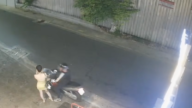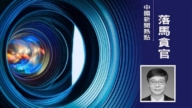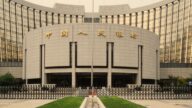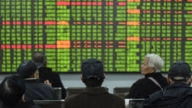【新唐人2011年3月21日訊】大陸官方表示要繼續擴建核電站。大陸主要的核電投資和運營公司——「中廣核集團」說,「中國核反應爐廠房可抵抗萬年一遇的地震」。旅德工程專家王維洛指出,「抗震」度數統計的是,地震對於地表建築物的破壞「裂度」,與洪水出現的頻率,所謂「百年一遇」不同。
《成都商報》等多家大陸媒體刊登有關:「中廣核集團」回應中國核電安全問題,表示:中國反應堆廠房可抗「萬年一遇」地震。
「中廣核集團」的高調回應,遭到中國網友一邊倒的質疑、嘲諷和炮轟。之後,「中廣核集團」在官方微博上解釋:「『萬年一遇』是一種通俗說法。指『發生的概率』極低。」
工程專家王維洛博士表示,「對地震沒有萬年一遇這個概念」,從來沒有這樣統計的。而地震對於地表建築物的破壞,是按照地震的「裂度」來計算的。最簡單的公式是「震級」加上2或3,就等於「地震的裂度」。
王維洛:「如果我們說洪水、說暴雨、說乾旱,我們還可以說是百年一遇的、五十年一遇的,因為它是靠出現的頻率來計算。那麼對地震而言,它是從來沒有這樣統計的。它應該說我們這個廠房可以抵抗十度的地震裂度,是『度』不是『級』。」
「中廣核集團」目前擁有深圳大亞灣核電站、嶺澳核電站一期、嶺澳核電站二期1號機組等,共500萬千瓦在運行的核電機組,是中國主要核電投資和運營方之一。
王維洛:「相對於現在可再生能源來說,核電站其實是一個沒有前途的工業,是在西方社會裏面淘汰的工業。但是為了他們最後還能掙一次錢,他就把技術全部出賣給像中國這樣的國家。」
在日本11號的天災引發了核洩漏之後,重視綠色能源和可再生能源的西方國家,紛紛從新考量自己的核安全問題。德國總理默克爾14號宣佈,德國政府將對所有核電廠進行檢驗,並且暫緩了「延長現有核電站使用期限」的決定。
而大陸方面,中國環保部副部長張力軍12號表示,中國不會改變核能發展計劃。剛剛結束的人大通過的十二五規劃,其中重點的「核發展計劃」顯示,要將現有的核電站裝機容量,增加近七倍。
網友在大陸網站留言說,「在大自然面前,人類是渺小的,人類能掌握的科學是粗淺的。多點敬畏,或可少受點苦難,或可免步恐龍的後塵。」
新唐人記者趙心知、李若琳採訪報導。
Withstand 10,000 Year Earthquake?
China』s authorities declared that they will carry on
their vigorous plan for nuclear power development.
China National Nuclear Corporation (CNNC),
China』s prime nuclear investing
and operating corporation, said: “China』s nuclear
reactor plants can withstand a 10,000 year earthquake.”
A Chinese engineering expert residing in Germany,
Wang Weiluo, said that 『earthquake intensity』
measures the degree of damage an earthquake
could cause to buildings. This is a different concept
from that of once in 100 years flood frequency.
Chinese media like Chengdu Business News
reported the responses of CNNC to China』s nuclear
safety issues: “China』s nuclear reactor plants
can withstand a 10,000 year earthquake.”
The bragging of CNNC provoked China』s netizens』
questions, criticism and ridicule.
Later, the CNNC explained on its official microblog:
“』Once in 10,000 years』 is a familiar expression,
which means an extremely low probability.”
Engineering expert, Dr. Wang Weiluo, said:
“There is no such a concept as
『once in 10,000 years』 for earthquakes.
Earthquakes have never been measured this way.
Instead, an earthquake』s damage to buildings
is measured by the earthquake』s intensity.
The simplest formula:
earthquake magnitude multiplied by 3/2,
will give you the earthquake』s intensity.”
Wang Weiluo: “For example, floods, storms,
or droughts, may be described
as once in 100 years, or once in 50 years,
because they are measured with frequencies.
But an earthquake has never been measured
in this way. They could say that their plants
can withstand an earthquake of intensity 10.
Notice that this is 』intensity』 not 『magnitude.』”
Currently CNNC owns a total of 500 million kilowatts
of nuclear power generating units, including Daya
Bay Nuclear Power Station in Shenzhen City,
Ling Ao Nuclear Power Station (Phase 1), and
Ling Ao Nuclear Power Station (Phase 2)』s Unit 1.
CNNC is one of China』s major nuclear
investing and operating corporations.
Dr. Wang: “Compared to other ongoing
renewable energy resources,
nuclear power is an unpromising industry,
which has been washed out in western societies.
But in order to make more money,
these western countries sold their
nuclear technologies to other countries, like China.”
Since Japan』s nuclear leak on March 11th,
which resulted from the natural disaster,
many western countries who emphasize
green and renewable energy, have started
to reconsider their nuclear safety programs.
German Chancellor, Angela Merkel, declared
on March 14th that the German government
will examine all their nuclear power plants
and the decision on whether to
“extend life of existing nuclear power stations”.
However, in China, Zhang Lijun, Minister
of Environment Protection in the CCP regime,
declared on March 12th that China will not change
its plan for nuclear power development.
The 12th Five-Year Plan approved in the recent
National People’s Congress includes an important
“nuclear development plan” which shows,
the capacity of all existing nuclear power stations
will be expanded nearly seven times.
Some Chinese netizens wrote: “Before nature,
human beings are insignificant.
The knowledge we can grasp is superficial.
We might avoid some disasters
and extinction, like the dinosaurs,
if we respect nature.”
NTD reporter Zhao Xinzhi and Li Ruolin.

























